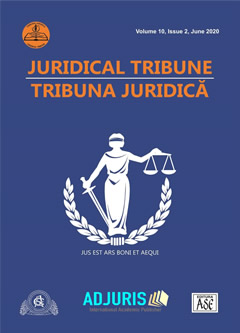Territory of state as indivisible whole and the norms of Constitution
Territory of state as indivisible whole and the norms of Constitution
Author(s): Leonid Tymchenko, Valeriy KononenkoSubject(s): Constitutional Law, International Law
Published by: Societatea de Stiinte Juridice si Administrative
Keywords: territory; sovereignty; International Court of Justice; Constitution of the Czech Republic;
Summary/Abstract: In the study of the substantive legal grounds for the resolution of territorial disputes, the judicial form is characterized by the priority of the grounds of legal title (agreemental title, uti possidetis) based on international treaties, or legal acts of the state possessing sovereignty over the grounds of actual title (effective occupation and governning of the territory, tacit recognition, prescriptional acquisition). Like the initial occupation, the acquisition of territory on the basis of prescription has a long and effective occupation of territory as a prerequisite. The possession of alien or contested territory without a treaty may be legal and enforceable only when there is an inviolable, uninterrupted and undisputed exercise of possession. Where the disputable territory is infact administrated by a state other than that which holds title, the International Court of Justice gives preference to the title holder.
Journal: Tribuna Juridică
- Issue Year: 11/2021
- Issue No: 3
- Page Range: 497-508
- Page Count: 12
- Language: English

